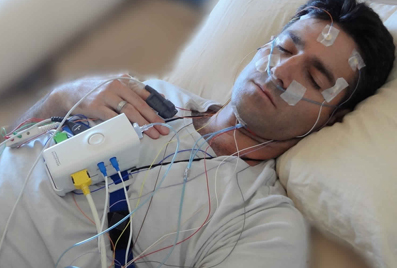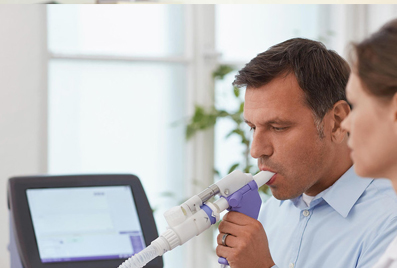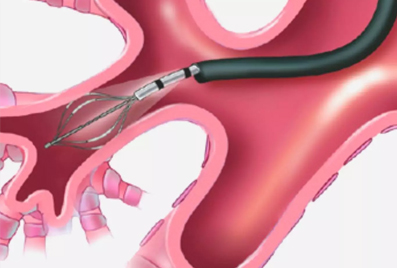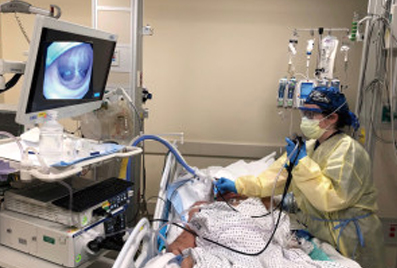Polysomnography
What is Polysomnography?
Polysomnography is a comprehensive sleep study test that diagnoses sleep disorders by recording certain body functions as you sleep. The physician will observe your sleep patterns and measure your brain waves, breathing rate, eye movement, heart rate, and more to identify sleep disorders.
Polysomnography analyses your stages of sleep which are rapid eye movement (REM) sleep and non-rapid eye movement (NREM) sleep. It also measures your sleep cycle to identify the disruptions in your sleep pattern and initiate a treatment plan.
The stages of sleep are classified as NREM and REM, which changes from the former to later every 90 minutes. In normal sleep, there can be four to five cycles of REM and NREM sleep. This sleep study is done at a sleep center or in your home with the guidance of your physician.
What is the need for Polysomnography?
Your physician will recommend polysomnography to diagnose sleep disorders like sleep apnea, narcolepsy, periodic limb movement disorder, REM sleep behavior disorder, or chronic insomnia.
Some symptoms that are concerning signs of obstructive sleep apnea are:
-
Daytime sleepiness
-
Restless sleep
-
Constant loud snoring
-
Frequent episodes of waking up during the night
-
Moments where you hold your breath during sleep, followed by gasps for air
What are the risks associated with Polysomnography?
Polysomnography is a noninvasive procedure that barely has any risks. The only possible side effect of this painless procedure is skin irritation caused by the adhesive that attached the electrodes to the skin.
How to prepare for Polysomnography?
The preparation that you must take for polysomnography is the same for both home tests and at the sleep center.
-
You will be asked to avoid drinks and food containing alcohol during the afternoon and evening of the test.
-
Do not take any sleep medicine or sedatives
-
Inform about the medications you take to the physician
-
Avoid napping in the afternoon of the sleep study
-
Chemicals, lotion, gel, cologne, and makeup are to be avoided during the test as they can interfere with the use of electrodes



